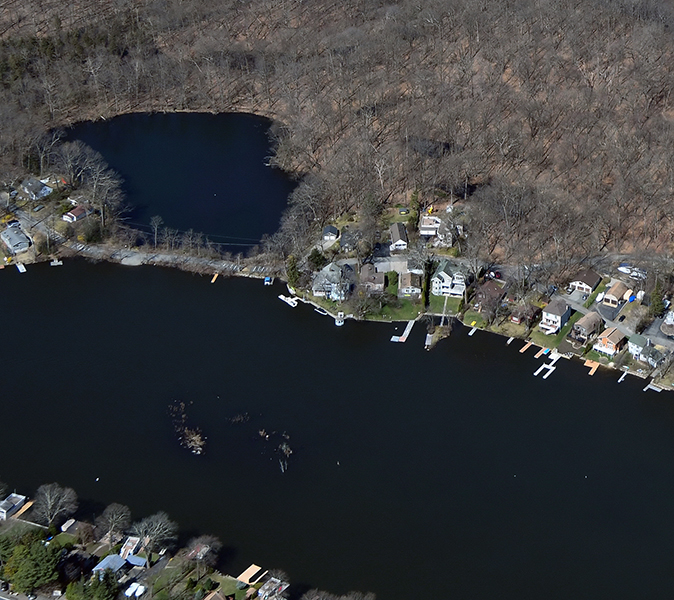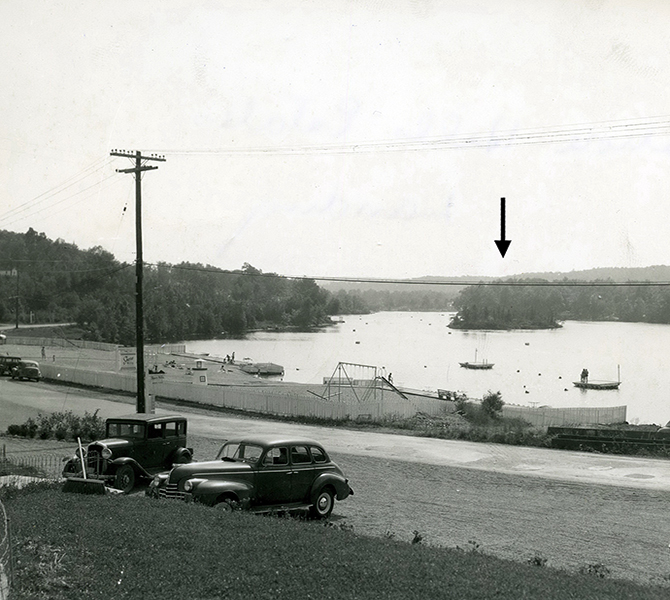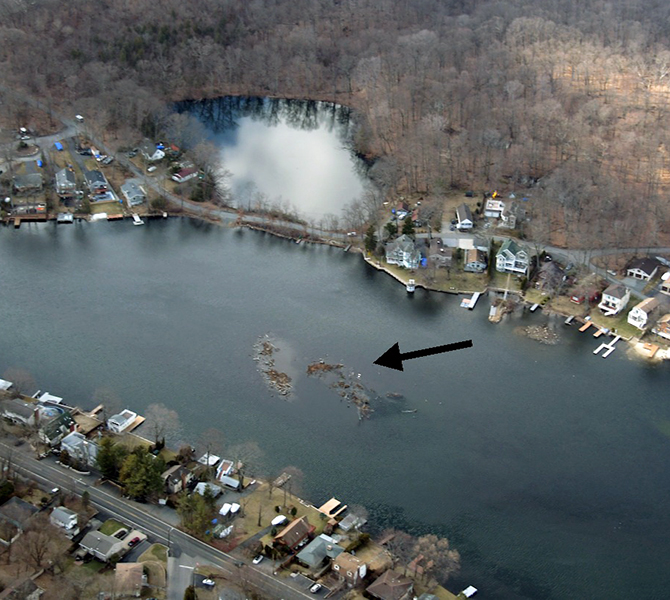
June 08, 2023| Community, Environment
By: Holly Odgers
We are excited to share that Roxbury Township was recently awarded a $113,650 grant from the New Jersey Highlands Council to fund a study on a “beneficial reuse and dredging” project in Landing Channel. The project aims to both reduce nutrient-heavy sediment and restore wetland habitat in the cove to improve water quality on Lake Hopatcong.
Landing Channel, the southernmost cove on Lake Hopatcong, is a manmade channel created in the 1800s to connect the Morris Canal to Lake Hopatcong to allow steamboats to transport passengers from the Lake Hopatcong Station to their lake destinations. The channel was kept clear with routine dredging, but this has not occurred since the 1990s, allowing sediment to accumulate for the last three decades.
A bathymetric survey conducted by Princeton Hydro and funded by a New Jersey Department of Environmental Protection grant estimated more than 250,000 cubic yards of sediment were present in the approximately 47-acre channel in 2016. The survey was part of an assessment of twenty-one areas around the lake being considered for water quality improvement projects. The dredging of Landing Channel was listed as a high priority for water quality due to the amount of accumulated sediment relative to the depth of the water. This sediment harbors a large amount of organic and inorganic phosphorus that fuels the growth of aquatic vegetation and algae including possible harmful algal blooms.
Within Landing Channel is an island, called “Floating Island.” This land mass, which raises and lowers with the water table, was first mapped in 1882. Its size has fluctuated over the years; however, from 1960 to present it has reduced significantly, causing a loss of wetland and shoreline habitats on the lake.
 |
 |
| Floating Wetland Island circa 1955 | Floating Wetland Island 2022 |
The proposed beneficial reuse/dredging project would rehabilitate the island with the sediment removed from Landing Channel, which would reduce phosphorus in the lake and increase wetland habitat at a lower cost than simple dredging, as removing the sediment is costly. These kinds of projects have been completed at the shore, but to our knowledge, have not been attempted in a freshwater ecosystem in New Jersey.
The funded study will be conducted by Princeton Hydro and will provide an updated and more refined assessment of the cove, including a sediment sampling and analysis plan, wetland assessment, and engineer plan for the project. In addition, the grant will cover obtaining the relevant ecological data from Landing Channel and Floating Island required for the permitting and design phase of the project. This collected ecological data will serve as a baseline of “pre-project” conditions, providing a means of quantifying the ecological benefits of post-project conditions.
We would like to thank Roxbury Township for their hard work and diligence in obtaining this grant to launch the study for this large-scale water quality improvement project. We look forward to seeing the results and hope to be able to seek funding for the next phase of the project in the future!

December 17, 2025
Community, Fundraising, People

December 16, 2025
Community, Environment